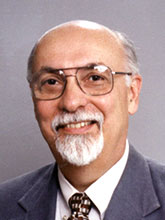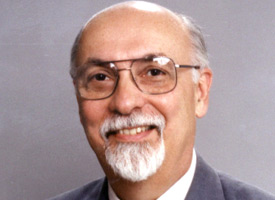With Dr. Bruce Hartung
In the July “Pressure Points”, I quoted a number of recent seminary graduates participating in a Post-Seminary Applied Learning and Support (PALS) group. In response, a pastor sent the following observation:
Your July [column] did not incline me toward PALS; rather, it reminded me of the danger of a “pastors-only” group (as well as “butchers-only,” “bakers-only” or “candlestick-makers-only” groups). They’re a superb environment in which to reinforce that sense of entitlement we all have.
As a small-church pastor, one of my duties is to quickly clean off the toilets after preschool — 4-year-olds possessing an unreliable aim. Yes, this is properly part of my job, as otherwise, the occasional guest would find himself or herself plopped down on an unclean toilet seat.
Mister Pastor, you are not [Saint] Peter. You are not in Peter’s position. Administrative tasks will always be some portion of your duties, certainly so coming right out of seminary. At times, you will suddenly help wait on a table, otherwise leave overburdened volunteers in the lurch and pretend the ensuing chaos is “not my problem.” Feeling you’re too important for such tasks is bad enough. Insisting to fellow pastors that “hey, you are, too!” is worse.
—————————————————–

Matthew Kim (in 7 Lessons for New Pastors: Your First Year in Ministry, Chalice Press, 2012) echoes some of your thoughts. He writes: “Ministers are servants in every aspect. There are many facets to service. Sometimes we get on our hands and knees to pick up crumbs left by the children. At other times, we print and fold all the Sunday bulletins. Service takes the form of washing the dishes after a Sunday meal together. It may involve helping an elderly person get into her vehicle. Ministry service might include shivering in the cold, harsh night of winter when assisting someone with a flat tire. It can mean holding a dying person’s hand at the hospital as he waits for the Lord to take him home. Opportunities for service are limitless if we choose to follow the Master’s example. Get acclimated to the pastor’s life by becoming a humble servant” (pp. 52-53).
“There are many Sundays where I am the last person to leave, usually cleaning the church building, picking up last-minute scraps off the floor in the fellowship hall and nursery. Christian ministry is about service to God and his people” (p. 19).
There is a balance that I believe is to be sought here. If a pastor (or any other church worker, for that matter) sees ordinary life tasks in the congregation as beneath his calling, then that is an attitude that needs repentance. On the other hand, if congregation members back away from participating in the administrative and support needs of their church, then that attitude needs repentance, as well.
Doing tasks together also connects people to each other in ways that are different from when they are sitting around just talking, for instance. And when the tasks are done bathed in prayer and in the name of the Christ, both task and relationships are truly blessed.
In the context of the PALS meeting I referenced in last month’s column, I was not hearing an “entitlement” sense. Rather, I was hearing something akin to identifying gifts in the community and utilizing them. That group of pastors, their wives and even their children were oriented toward service. In quoting them the way that I did, I may not have given a fuller expression to their meaning. Pastors also bring to the table — blessed by God’s Holy Spirit — particular gifts of self and of office. A congregation choosing to clear some duties away to give more space for the pastor’s particular contributions to building up the body of Christ is a very good thing.
Nonetheless, your caution is an excellent one. Thanks for sharing it. Other readers might chime in if they wish.
Matthew Kim’s book is a good read, although the reader will not find everything congruent with LCMS teaching. In this case, though, I think he is on target.
The Rev. Bruce M. Hartung, Ph.D., is professor of Practical Theology at Concordia Seminary, St. Louis. He can be reached at hartungb@csl.edu.
For more information or to register, visit csl.edu/resources/continuinged/theological-symposium-2013.

